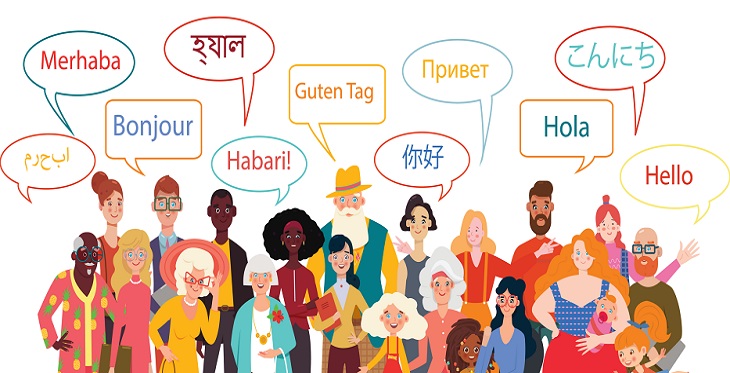Let’s face it. For many people in the USA, the language services industry (translation and interpreting) is an unknown field. Sure, they know about the translators who work at the UN, but beyond that, there isn’t any real comprehension of what translators and interpreters do, let alone what distinguishes a professional in these fields from a “bilingual” or what the difference between a translator and an interpreter is.
But the language services field is a $5 billion-a-year industry in the USA (https://www.ibisworld.com/united-states/market-research-reports/translation-services-industry/).That’s a pretty big paycheck for something that seems like a well-kept secret. And a good portion of that industry is in the medical domain. So, there are many players in the field competing for those dollars. But how do you tell the good ones from the bad? How do you make sure that the language service provider you are working with is professional and will deliver quality services? There are several ways you can ensure that you are getting a quality product.
Let’s begin with translation, which is the transfer of a message from one written language to another. The American Translators Association (https://www.atanet.org/) is the organization that gives the certification exams for translation in the following languages:
|
English into Arabic
|
Arabic into English |
A translator will generally work in one direction, into their native tongue, but occasionally will work in both directions. To be certified to do so, they should have taken the exam for both directions. If they are certified, they will be able to prove it by providing you with a certification number that you can check at: https://web.atanet.org/certification/check_certifications.php
An additional positive factor in using certified translators is that they must take continued professional development classes to maintain their credentials and can lose their credentials if they have done something unethical.
But what if the languages you need are not on the above list? It depends on the training of the translator and the experience they have with the type of documents you need translated. This means you need to vet them and their work more carefully before you make your choice. The fact is that not all languages have certification exams, and it is the responsibility of the consumer to check that they are working with a qualified translator if there is no certification exam for the language combination they need.
What if you’re working with an agency or language service provider and not an individual translator? In that case, you should be asking about ISO (International Organization for Standardization) certification. While there are standards published through the ASTM (American Society of Testing and Materials https://www.astm.org/), currently there is no certification for the language services industry by this organization. ISO 9001 Quality Assurance is the certification you should look for with respect to larger language service providers/agencies. However, this certification is expensive to obtain and smaller agencies may not be able to afford this certification, so a series of questions about (a) quality assurance procedures of the organization and (b) of the use of only certified and/or highly experienced and trained translators where no certification exam is available are in order here before you make a choice of which language service provider to work with.
What about interpreters? Spoken interpreting (as oppose to sign language interpreting for the deaf or hard of hearing) is the oral transfer of a message from one language to another.
First things first here. The two professions (translation and interpreting) require separate training and skills, so don’t assume that someone who can do one job can do the other. There are cases where professionals do both, but frankly they are rare-- and should be--because it means two distinct sets of training and two distinct skill sets are in play.
In the medical field in the USA, two organizations certify medical interpreters. They are the National Board for Certification of Medical Interpreters (NBCMI https://www.certifiedmedicalinterpreters.org/) and the Certification Commission for healthcare Interpreters (CCHIA https://cchicertification.org/). The NBCMI gives an exam that leads to the Certified Medical Interpreter credential in Spanish, Cantonese, Mandarin, Russian, and Korean. The CCHIA offers two certifications. The first is the Certified Healthcare Interpreter credential in Spanish, Arabic, and Mandarin. The second is the Core Certified Healthcare Interpreter for speakers of other languages. This one tests only ethics and basic training in medical interpreting (no oral interpreting component). For languages other than those listed above, the consumer again needs to vet the interpreter more carefully with questions about experience and training for the job at hand.
The same issues that pertaining to translation and using certified or qualified personnel for contracted jobs exist with respect to interpreting as well. Your best bet is to look for agencies/language service providers with ISO 9001 Quality Assurance certification or who can provide you evidence of only using certified or highly experienced and qualified interpreters for the jobs you have for them.
As you can see, getting quality language service is not as easy as one might think in today’s plurilingual American society! This means the agency or provider of language services you deal with should be a trusted partner you have vetted beforehand, to say the least.

